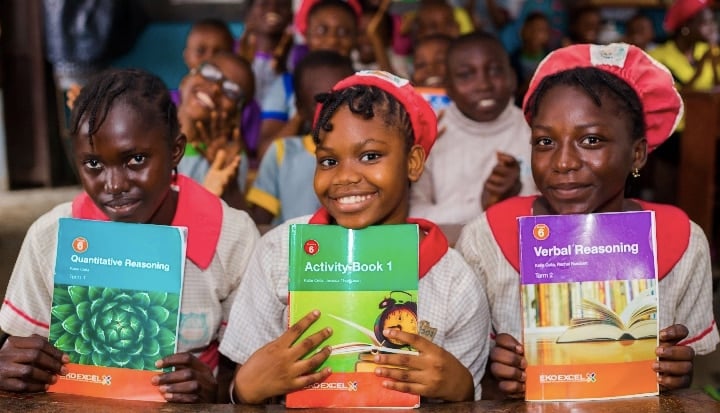Achieving gender equity requires a multi-faceted approach. As the global community searches for solutions to inequalities, a strong focus must be on the foundation of empowerment – education and the ability to learn.
This International Women’s Day (IWD), Wednesday 8th of March, the world celebrates the achievements and contributions of inspiring girls and women across the Globe.
Once again, the need to create an equitable future for all girls and women will be in the spotlight.
SDG 5 aims to “achieve gender equality and empower all women and girls” by 2030. Nearing the halfway point, many key indicators are very far from hitting targets; these indicators stem across a range of areas, including education.
The figures paint a clear picture; much more must be done to achieve gender equality.
The UN Women theme for this year is “DigitALL: Innovation and technology for gender equality,” focusing on the challenges girls and women face in this area, and the massive potential that comes with improving these outcomes. Empowering girls and women in digital spaces requires a focus on both digital and non-digital foundational learning.
Education, as a key foundation of equity, is where solutions must be offered. NewGlobe pedagogy acknowledges existing gaps in education outcomes for girls and builds an inclusive learning environment – a model that will help pave the way for an equitable future.
Gender equity in education starts with measurable data
Capturing data helps to identify issues and develop solutions. So, it is worrying to know that there is a gender data gap, stifling efforts to reach equity.
A recent UN Women article highlights that only 48% of the data required to monitor SDG 5 is available. The article powerfully states: “Where data are missing, women and girls are invisible… more and better gender data are needed to accurately diagnose the barriers and spur the necessary policy dialogue on gender equality that drives change.”
In Sub-Saharan Africa, the lack of data on learning outcomes and education creates significant barriers. Whilst data is missing for both girls and boys, girls are impacted more as learning inequities are more common.
A 2022 UNESCO GEM report highlights the scale of data shortfalls, revealing that there is no data on the learning levels of two-thirds of African children. The report states: “A common obstacle preventing the alignment of a vision with a realistic target is the lack of regularly collected data of good quality on learning outcomes.”
NewGlobe is committed to closing the gap in Sub-Saharan Africa learning data, by supporting governments to capture data, and delivering interventions that promote learning outcomes.
Capturing data is a core part of the NewGlobe model.
And, a recent study shows how it can be used to advance equity. Technology and data capture enables monitoring that evaluates the progress of all girls across indicators like attendance and academic performance. Using these powerful insights, education can be shaped and specialized in making sure all students learn.
The power of data in reaching gender equity in education is clear – governments and education stakeholders must prioritize investment in the systems needed to capture this crucial information.
Setting up strong learning foundations for girls
Having access to education, and the support to attend school is often the first learning barrier many girls face.
The past three decades have seen the attendance rate in all levels of education between girls and boys narrow. A UNESCO report highlights that on average global gender parity of education has been reached – however some regions, such as Sub-Saharan Africa, are yet to reach this level.
In many Sub-Saharan African countries there are still significant gender gaps in education, as schooling progresses these rates increase, pointing to a serious issue – current systems lack the support for girls to access and stay in education.
NewGlobe finds solutions to problems like these with pedagogy that supports schools to engage all students in learning. By doing so, they are put on a path to gain the benefits of quality education.
A recent study of the EKOEXCEL program, for which NewGlobe is the technical partner, showed increased engagement from girls – being 8% more likely to attend school when compared to government schools. An outcome attributed to pedagogy that has equity and learning built into its foundations.
While attainment in education is important, learning outcomes show meaningful engagement, and whether education is truly equitable.
A 2022 study led by the Nobel Prize Laureate Professor Michael Kremer found that NewGlobe pedagogy was achieving equitable outcomes that went against the trend in Sub-Saharan Africa.
Learning gains were equally large for girls and boys in NewGlobe support schools. The findings contrast with established research which shows girls in Sub-Saharan Africa are consistently disadvantaged in learning with lower literacy rates than boys even when both have the same educational attainment.
Representation and positive role models
For girls to engage and succeed in school, they must feel represented and have positive role models.
This can be challenging in Sub-Saharan Africa, with a 2019 study highlighting: “arguably, the most common barrier for girls [in Sub-Saharan Africa] has been the lacking societal sense of entitlement to education.”
Changing the societal narrative around girls in education requires a varied approach – however, at its core, education stakeholders must ensure girls are represented in this space.
NewGlobe-supported schools throughout Sub-Saharan Africa recognize these barriers, ensuring pedagogy provides solutions to these challenges. They focus on a range of carefully designed initiatives to create a positive learning environment, including::
- Commissioning all artwork and creative stories in textbooks and workbooks to ensure equal visibility of male and female characters, ensuring female characters are in powerful and unconventional roles.
- Introducing school leadership roles for both girls and boys.
- Approximately 60% of NewGlobe teachers are women, providing role models within the classroom and community.
- Fostering partnerships, such as coding programs, aiming to close the gender gap of girls and women in STEM.
NewGlobe believes that incorporating such initiatives helps education systems transform any harmful narratives that disrupt girls’ opportunity to learn.
This International Women’s Day must focus on foundations; the foundations of learning, the foundations of gender equity, and the solutions needed to ensure they are part of the future for all women and girls.










